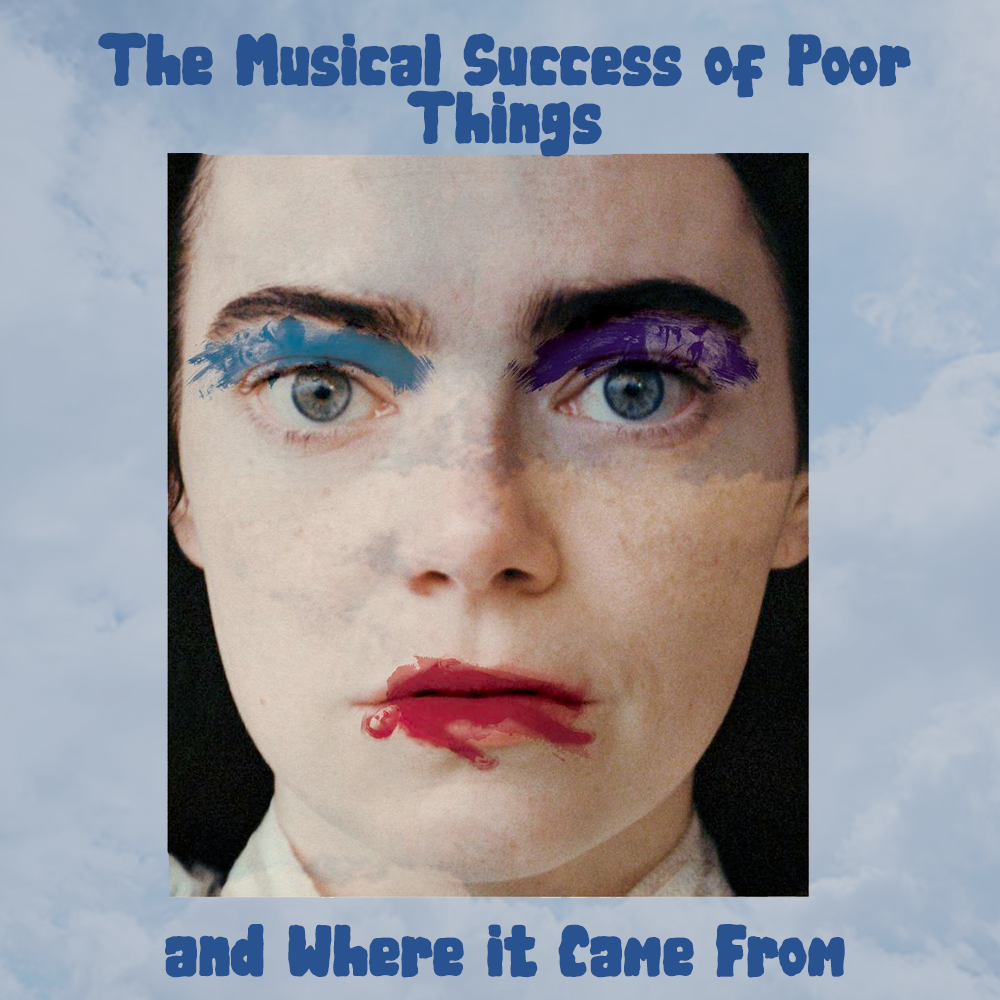Please visit response.fsu.edu for official FSU updates and resources.
The Muiscal Success of Poor Things and Where it Came From

Praise has been heaped ad nauseam on Poor Things. Lanthimos’ pristine direction, with his signature embellishments of morbid deadpan, has now taken to new heights with a whole world to play off of his usual tricks. With some of the best sense of pacing and mise-en-scène in modern cinema- provided by production designers James Price and Shona Heath. Stone's transformation into Bella Baxter, a career-high for one of Hollywood's best actresses– completely embodying the naivety, sexual agency, and sense of wonder and exploration of the character. The recognition is all deserved. It’s an ambitious odyssey to execute on screen, and every aspect of the production works in an oddball harmony to make one of the best films in a frankly stacked year for cinema. I’d argue what ties this all together is the music. Equally as weird but never veering to nonsense as the rest of the film, Jerskin Fendrix created his own marvel of an unconventional but enticing soundtrack– which when looking into his roots as an artist is no surprise.
Fendrix literally fills his score with bells and whistles– along with a lot of other MadCap sounds that amalgamate into a Frankenstein of music. Much like how Bella is not only a Frankenstein of anatomy, but of first-hand experience and philosophy, again reflected in the score by how many discordant moods, textures, and points of inspiration it showcases. Even removing the context of the film, jumping from Portuguese dance tracks to sprawling harp melodies makes the most sense. Thanks to how a throughline is always kept, whether it be from Bellas's many Motifs or simply how Fendrix’s flare as a composer is singular and shines on every track. At least I think those noises were a harp, it’s intentionally hard to tell at times with how the film brilliantly nails a balancing act of familiarity of instrumentation with a sense of the unknown. We as the listener can hear and pick out the reverb of the string plucks and bells, and the breathiness of the woodwinds. But as a whole, the soundtrack is full of so many layers of this “known” that it wraps around to sound alien. It’s a dense soundscape that works perfectly thematically, as Bella is similarly taking in the variety and rawness of the wide world all at once.
It’s personally satisfying to see the ethos of the music scene Fendrix came out of on a world stage through a much-deserved Oscar Nomination– that being the scene surrounding Brixton’s windmill pub. A hotspot for refreshing acts like Black Midi, Squid and Black Country, and New Road. Acts that take the familiar structures of their respective punk and rock genres and twist them into exciting new work. The bands, like Fendrix, take from a wide array of different sounds and blend them into something wholly original. Take Black Midi’s track (Eat Men Eat), where the song starts with harsh, droning rhythms but eventually alternates between Jazz breaks, film soundtrack-inspired triumphant orchestra, and a complete manic and fast-paced deconstruction of the song's rhythm by the end all framed within narrative lyricism akin to what a normal punk band would do– but done in a way we haven’t heard before.
Fendrix came from a revolutionary musical movement. The continued recognition of that artistic intent to innovate and redefine the boundaries of how a soundtrack is meant to sound means more art that astounds and resonates. Like how Poor Things did for so many.
Writer: Tony Molina
Artist: Solymar Estrella



